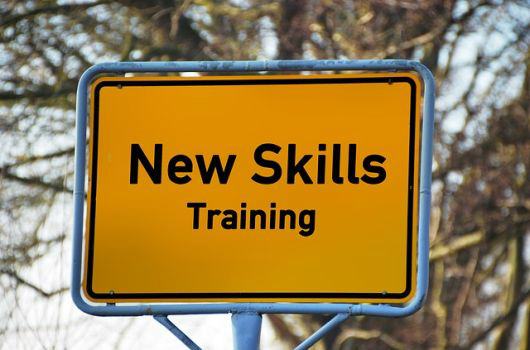Is It Really Necessary For Traditional Teachers To Be Transformed Into eTeachers?
Online trainings are becoming increasingly popular and this trend seems to be increasing. We are not talking here only about language courses, but also online trainings offering other skills development. Just to mention a few:
- Reading.
- Playing the piano.
- Dancing.
- Playing chess.
- Or even driving a car.
Students got used to the fact that they can learn anywhere, at any time. It’s just a matter of finding a suitable training provider, be self-equipped with the latest technology (laptop, tablet, or a smartphone) and the eLearning world is at our feet.
Are eLearning Professionals Ready For Online Service Provision?
Let’s take language teachers into consideration. That is close to my heart as I am one myself. We have been doing our job for quite a few years now, maybe for even over a decade. We have got qualifications and experience, but we often forget these have to do with traditional teaching and mentoring. Not many of us have obtained eQualifications as both an update on teaching trends and fresh breeze to our CVs.
To my mind, acquiring the skills of eTeachers is absolutely essential and “a must” if we are considering online teaching.
What Do We Need To Know About eTeaching?
As for the pure theory, later on used in practice, we should familiarize ourselves with:
- International standards for distance learning: The standards will help us maintain high quality eTeaching.
- The latest technologies supporting online teaching: Learning Management Systems (LMSs), language platforms, webinar tools, etc.
- Basic eLearning definitions: eWorld’s teaching foundation.
- eLearning classification: In order to adjust the right course to an individual candidate.
What is more, we ought to practice, practice, practice before we actually take off with our virtual students onboard. The aim of this activity often viewed as simply tedious, is to avoid as many malpractice as possible in the “real life” virtual class.
A focus group would be perfect for this phase. If you happen to have difficulties in finding a group of testers, I recommend attending an online training for eTeachers. Along with the training you get a possibility to join a focus group consisting of other teachers and a trainer. You get a unique chance to learn from the course leader and your peers, before you invite your students on board of an online course.
Let’s take a closer look at the practical aspects of online teaching:
- Students’ health and safety.
As teachers we need to know about possible difficulties our students could face during such courses to minimize their stress and optimize their success. - Planning.
We should construct a few drafts of online classes scenarios stating step by step what we are planning to present during an online meeting, along with manageable timeframes. - Constructing.
We should become aware of all the elements of a well-constructed online training / virtual class / webinar. Introduction – warm up – main topic – fun drilling – cool down – homework. - Testing.
The demo, a sample of our online class with a focus group for feedback.
A good school offering an eTraining will complete all the phases listed above and issue an eCertificate as a proof of mastering the eQualifications both in theory and practice.
It s really necessary to ‘re-qualify’ ourselves to become eEducators? In my opinion – it definitely is. Not only for our self-development, but most importantly for the well-being and success of our students.
References:
- The Free eBook: How to become an eLearning Professional
- http://www.yourdictionary.com/e-teacher
- K-12 Blended & Online Learning
- Inacol: International Standards
- Which LMS for my Little Language School?
- Webinar Services Review
- The Online Learning Definitions Project
- Classifying K–12 Blended Learning (pdf)

